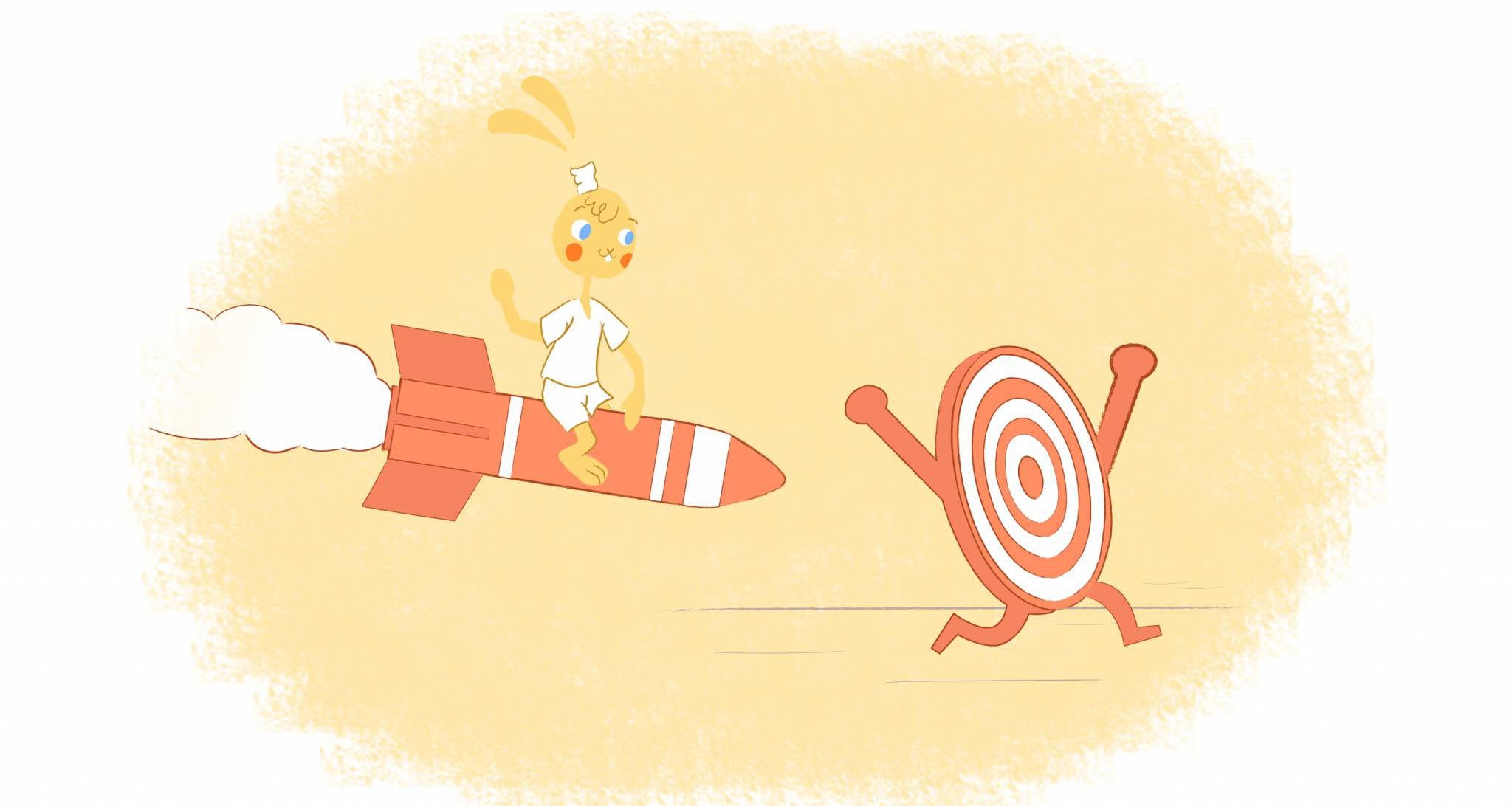

I love what I do, and I don’t take that for granted. I know so many people who don’t feel the same. At the same time, there are days when I want to get as much done as possible as quickly as I can. Here’s how to turn up your average speed to complete tasks.
Sometimes it’s because I have other plans, like going on a vacation or I want to enjoy a new hobby I picked up. Other times it’s just because I’ve been putting in too many, and I’m just overworked. Regardless of the exact reason, I just want to speed things up so I can get my job done and go on with my day. But, how can I achieve that goal without sacrificing quality?
Work against time.
Have you heard of Parkison’s Law? It’s an adage attributed to British naval historian C. Northcote Parkinson that states, “work expands to fill the time available for its completion.” But you didn’t come here for a history lesson. You want to know how that applies to how you can work faster.
Well, let’s say that you set aside two hours to work on a specific task. Or, even worse, you leave don’t also allocate a particular timeframe. You’re going to take longer then it takes to complete that task. And, you really can’t be faulted for that. I mean when it seems like you have all the time in the word to get something done, of course, you’re going to milk it.
The easiest way to combat Parkinson’s Law is to block out the appropriate time to complete a task. So, if it takes you three hours to write up a report, then block out three hours in your calendar solely for this responsibility. I would suggest that you first track your time for a couple of weeks early. It will give you a more accurate understanding of how you spend your time so that you can realistically block out time.
But, if you want to speed things up, work against time.
It’s almost like playing a game. If you know that it usually takes three hours to write a report, give yourself a shorter timeframe like 2 hours. Challenging yourself like this will encourage you to work more rapidly. And, as Siimon Reynolds notes in Forbes, you will also experience Flow more often.
Another trick you could try is pretending that your day ends early, like around 11 a.m. “If you knew you had to go home at that point, yet you still wanted to achieve some worthwhile jobs, what would you do,?” asks Reynolds. “Create a small list then start on those important tasks immediately.” Employing this “technique works brilliantly because it forces you to take action quickly on what counts.”
A similar hack would be implementing a 4-day workweek. “Just because you’re working fewer hours with a 4-day work week doesn’t mean you have to be less efficient,” explains Choncé Maddox in a previous Calendar article. “Since you know that cutting your work schedule down will decrease the time you can spend working, see if you can focus on working more efficiently.”
Get those Nikes on your feet.
We’re not shamelessly plugging a product here. We are, however, championing the brand’s iconic slogan, “Just do it.”
I know. That sounds a little too easy. But, it is a practical way to fight back against two of the most potent forces preventing you from working faster; procrastination and perfectionism.
To be honest, there are a variety of reasons for this. As Max Palmer explains in “Getting Started Should Be Top Strategy on Your List,” it may be because you lack confidence or “dreaming too big.” Sometimes it’s because you psych yourself out. We’ve all looked at a to-do-list or calendar and saw a task that we’re not looking forward to. Without realizing, we may have even blurted out, “This is going to suck.”
Regardless of the exact reason, it is possible to get started on anything. It just takes a little planning in advance.
- Have a plan to nudge you to get started. If you had to write that report, then make sure you have all of the tools and resources needed to complete this task.
- Put your most important responsibilities in your calendar.
- Get in the zone by removing distractions and working during your prime time.
- Break down larger tasks into more manageable pieces.
- Set time limits.
- Practice self-compassion.
- Get over being perfect — it doesn’t exist.
If all else fails, try out the five-minute rule. It’s a straightforward cognitive behavioral therapy technique for procrastination where you commit to working on something that you are avoiding. If you still feel terrible about five-minutes, move on to something else. However, you should notice that this builds momentum, and you’ll keep until the task is completed.
Tune in, tune out.
I am always surrounding myself with music. It’s one of my greatest loves in life. While that may seem like a bold statement, music is still there for me no matter how I feel. If I’m stressed out, I go for a drive and blast some hard rock music. If I want to get motivated to work out, there’s nothing like the “Rocky soundtrack.” Okay, I’ll admit it — sometimes I put on “Desperation Disney,” if I’m having trouble working.
Also, music is a proven way to get in the zone. As pointed out in Quartz, this is because music has the ability to:
- Improve your mood.
- Enhance physical performance.
- Make repetitive tasks more pleasurable.
- Promotes focus and concentration.
In short, music doesn’t just boost productivity. It can also make you work harder, better, faster, stronger.
Another advantage of listening to music? It can also block out background noise that can distract you. Instead of being drawn into that conversation your co-workers are having, you can remain focused on your work by listening to your favorite tunes.
And, speaking of distractions, identify the most significant culprits so that you can remove them. For example, if those pesky smartphone notifications keep interrupting you, then turn off your phone, block apps at certain times, or leave it in another room.
Plug energy leaks.
In case you weren’t aware, we have a limited supply of mental and physical energy. As such, you mustn’t be careless with this precious resource. If so, you just aren’t going to be at peak performance.
To resolve this, plug those energy leaks so that you don’t go into an energy deficit, such as:
- Multitasking. Unless you’re talking about something easy like folding laundry while on the phone, it’s a myth. The brain just isn’t capable of multitasking. Besides, switching between tasks is costly and detrimental. Preserve your time and energy by focusing on one thing at a time. You can also give task batching a try.
- Close open loops. These are those unfinished actions that drain “energy out of you by taking up space in your subconscious.” Amanda Bucci suggests in a Fast Company piece to “take an hour, day, or week to close the loop and do that thing.”
- Establish boundaries. If you’re already working at full capacity or have a full schedule, say “no” to additional time requests.
- Reduce decision fatigue. Stop wasting time on less crucial decisions so that you can reserve your energy for more important objectives. For instance, every Sunday, plan out your meals and attire for the week so that you don’t have to make these choices throughout the week.
- Attend to your own well-being. At the minimum, this includes attending to your self-care and using your downtime more wisely. For example, unplugging for the weekend and doing something that you enjoy, like camping, visiting a spa, or attending a concert.
Declutter your life.
Numerous studies show that clutter is stressful and distracting. It can also slow you down and prevent you from efficiently processing new information. So, go ahead and get rid of that clutter for once and all.
That seems a bit too broad. So, start by creating a checklist so that you have a visual of what you can reduce. For example, what items on your to-do-list can be delegated or deleted? After determining these items, you should be left with a lean and mean list that is way more manageable.
You should also organize your workspace, simplify your goals, and reconsider your routine.
Maintain your energy levels.
“Well maintained machines don’t get tired or have off-days,” writes James Mallinson in Productive! Magazine. And, “though we as humans cannot maintain 100% energy levels all the time, there are measures we can take to stay as alert and energized as possible and not try to work at a high pace when our energy levels are low (you wouldn’t try and drive a car on an almost empty fuel tank would you?).”
The most obvious is getting enough sleep, exercising, and eating healthy snacks. I mean, how fast do you think you’ll work if you only got four hours of sleep, inhaled a Whopper meal for lunch, and can barely walk up a flight of steps?
I’m not trying to be patronizing. It’s just a fact. If you want to have more energy and focus, then you need to be more like a well-maintained machine.
I’d also add that you should work on your most important tasks during your prime biological time. Because this varies from person-to-person, you can find this out waking-up without an alarm clock and recording your energy levels by the hour. After doing this for three weeks, you should find out when your energy spikes and drops.
Knowing this can then plan your days by energy level so that you can get more done in less time.











Deanna Ritchie
Editor-in-Chief at Calendar. Former Editor-in-Chief and writer at Startup Grind. Freelance editor at Entrepreneur.com. Deanna loves to help build startups, and guide them to discover the business value of their online content and social media marketing.